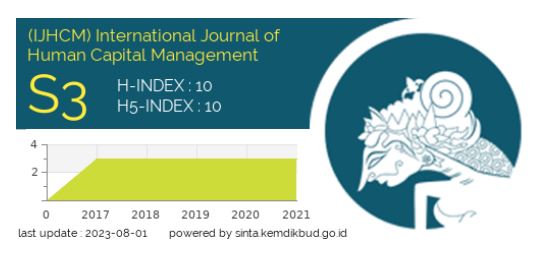Institutional Conflict in Employee Output, Absenteeism and Turnover
DOI:
https://doi.org/10.21009/IJHCM.07.01.3Keywords:
output, conflict, performance, absenteeism, turnoverAbstract
Abstract
This study aimed to examine the effect of conflict on employee output, absenteeism and turnover. The study was quantitative, and the design was a descriptive survey. The population for the study was stratified, and the study participants were selected randomly. The instrument was a questionnaire, and the IBM SPSS version 22 was used to generate the results for discussion. The study revealed that conflict adversely influences employee performance and also accounts for frequent employee absenteeism, low output and turnover. One implication for leadership from the study is that workplace conflicts significantly affect employee output, absenteeism and turnover. Each employee faces different conflicts that must be understood and resolved. By implication, organisational leaders must design jobs appropriately for employees to prevent duplications and foster peaceful collaboration among employees. This will help them build trust among themselves at the workplace. This will reduce interpersonal, relationship and task-related conflicts within the organisation. This will minimise conflict and its dysfunctional consequences on the employees and the organisation. Literature on the conflict in higher institutions appears to be scarce in Ghana. This study is different as it examines the relationship between conflict and employee performance using work output, absenteeism and turnover in technical universities in Ghana.




